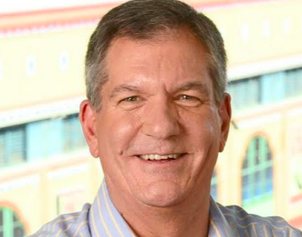‘Mediapalooza’ puts $200m in Oz billings in play with Mercedes and Citibank joining local list
The US advertising press have termed it ‘mediapalooza‘ and ‘reviewageddon‘.
The series of global media pitches sweeping the world has put around $200m at play within the Australian ad market, according to a Mumbrella analysis.
 Mumbrella understands another there are at least two new global pitches which will have an impact on the local market, with Daimler/Mercedes $17.9m local media account and Citibank’s $4.8m media account both expected to be drawn into their respective global media reviews this year.
Mumbrella understands another there are at least two new global pitches which will have an impact on the local market, with Daimler/Mercedes $17.9m local media account and Citibank’s $4.8m media account both expected to be drawn into their respective global media reviews this year.
Fortune Magazine estimates that globally $26bn of business is up for review, although several of these big international reviews – Procter & Gamble, Coca-Cola, Volkswagen and Mondelez – are not excepted to impact the Australian market.
Nielsen estimates put the total value of the ten known local media pitches at $175m in main media spend. However, this figure does not account for digital media spend, which is likely to push billings to in excess of $200m.
Leading local marketing consultancies are warning that the global pitches have been called due to a multitude of factors: cyclical factors, concern around media transparency and then a desire by clients to drive down the price of both media and agency fees.
Darren Woolley CEO of marketing management consultancy TrinityP3 said transparency and price were the major drivers of the global ‘mediapalooza’.
“There are two things driving these pitches,” said Woolley. “The big revelation back in March from ex-CEO of Mediacom US (Jon Mandel) that all agencies are getting kickbacks.
“So there is an absolute fear of missing out or fear of being ripped off. Then there is an absolute desire to get lower prices – that’s both lower media and lower agency fees.”
Rival consultancy Enth Degree CEO Graham Webster said transparency was definitely a major factor in the global pitches but said he thought some of the review were also cyclical.
“I think from what I’ve read in the States and seen here there are a number of things happening here and one them is a natural cyclical phenomenon and it is good corporate governance to review all suppliers,” said Webster.
“There is no doubt that the whole opaqueness – and I’m talking globally – the arrangements between media owners and media agency groups is a cause for concern.
“Globally there are issues because of the opportunities for less than palatable arrangements to be had.”
Navigare’s Jeff Estok also warned that concern about transparency could be used to drive a discussion on price.
“It’s not the media transparency issue, it is the effect of the media transparency issue,” said Estok, who is managing partner at the consultancy. “This has been gaining momentum in the US for a while.
“My colleagues in the US tell us a big part of it is a thinly veiled attempt to drive fees down. The transparency issue has given them the opportunity to use that as a reason to call the review…they may call it for other reasons but really they are seeing it as an opportunity to push price down.”
Enth Degree’s Webster said the need for clients to get their heads around the evolving media landscape was also a key part of these media pitches.
“What has happened over the last five years, and more incredibly over the last two years, is just this explosion in media and I think clients are questioning whether their media agencies are actually ahead of the curve or just playing catchup,” said Webster.
TrinityP3’s Woolley said the “race to the bottom” would be a key factor in deciding many of these international pitches and that Australian media agencies would likely have little impact on how the global pitch played out.
“All of these are pitches purely about driving the race to the bottom,” said Woolley.
“The Australian market on a global basis is seen as relatively small, apart from a handful of clients who see it as a very strategic market, it is just another market. So local media agencies will have little input, with many the local CEO might get to have some global input but it won’t be pitched in this market.
“Accounts might move and the local agencies might well have no ability to change it whatsoever.”
Estok summarised the situation by noting: “Many of these pitches will be spreadsheet driven… The local offices will be affected but a lot of it will spreadsheets etc. and they won’t be working on it in the same way they would if it was a local media pitch.”
Asked about the impact it will have on the US and Australian markets he said in the short term the number of pitches were a “disaster” for the agencies.
“This is a disaster. Particularly looking at the US where there are billions of dollars tied up in RFIs (requests for information) and really there are only ten agencies in the US who can participate in those,” he said.
“No one has a team sitting around waiting for pitches. It is a hell of a drain on resources but it is part of the business.
“The quantum of pitch has got to be having an effect on the agencies in the States especially. Everybody loses.”
Nic Christensen







Hmm Vizeum winning 20th Century Fox at an Australian level would cause a slight conflict of interest with them already servicing Warner Bros.
Especially awkward considering Murdoch’s failed bid to buy out WB last year.
User ID not verified.
Hi Hankfist,
Vizeum are on the global roster for 21st Century Fox.
Cheers
Nic – Mumbrella
http://www.campaignasia.com/Vi.....Lions.aspx
User ID not verified.